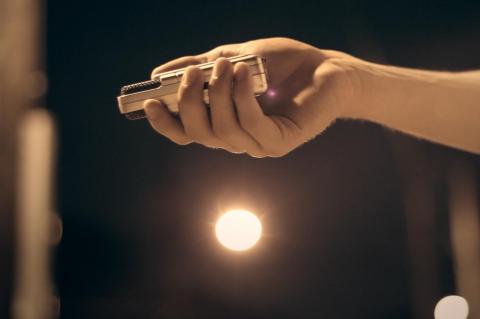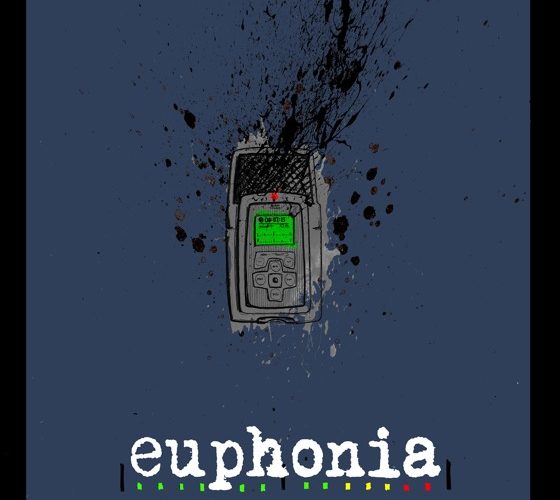Filmmakers have always been intrigued by the loneliness and isolation felt by teens everywhere, not just in anonymous suburbs lined with big box stores off interstate highways. Euphonia is a brilliant tiny feature clocking in just under an hour (it actually may not be considered a feature by some festival standards) and it explores this isolation due to technology on a more primal level than most, by isolating a key element of the film: its soundtrack.
Recalling Amir Naderi’s brilliant yet little seen Sound Barrier, a film sharing the frustrations of a psychologically deaf boy searching for the voice of his mother (and thus his own voice) and Thomas Riedelsheimer’s stellar documentary Touch The Sound, about deaf musician Evelyn Glennie , Danny Madden’s Euphonia also uses sound to great effect. Following an unnamed boy (Benjamin J. Papac), a high school student who works nights in a big box store acquires a small digital recorder and sets about obsessively documenting his world. The film applies a minimalist approach — we learn very little about his boy as the recorder threatens to engulf his world.
 Here is a film that is riddled with questions of the truth and memory, of process and art, and the line between art and life:, covering an awful lot of ground in its short running time (although, strangely, it might pack the same punch in a more condensed form as well). Some artists, writers and filmmakers know where to draw the line between recording or gathering material for a project and when to not, and thus this can effect one’s personal relationships (if you don’t believe me, I urge you to see any of Nina Davinport’s films). Often real life has to stop when the recorder runs out of batteries. The audiences share this frustration, often with the filmmakers.
Here is a film that is riddled with questions of the truth and memory, of process and art, and the line between art and life:, covering an awful lot of ground in its short running time (although, strangely, it might pack the same punch in a more condensed form as well). Some artists, writers and filmmakers know where to draw the line between recording or gathering material for a project and when to not, and thus this can effect one’s personal relationships (if you don’t believe me, I urge you to see any of Nina Davinport’s films). Often real life has to stop when the recorder runs out of batteries. The audiences share this frustration, often with the filmmakers.
Euphonia, I assume, will be widely embraced especially by filmmakers peeling back the level of frustration we face: either we get it or we don’t. If there is that one small technical thing wrong with an otherwise flawless scene, is the moment usable? It’s rare we see this frustration played out — and by recording sound as an element that is both diegetic and non-diegetic (for example, our hero will record sound in a scene, and walk off camera with the recorder), the world (although in sync) slowly unravels, approximating reality in a fascinating and uncomfortable way as the landscape and soundscape don’t often match.
The goal of capturing reality is always a mediation of reality, whether on film or via a soundscape, it’s all entirely subjective. Euphonia reveals this problem rather masterfully. It’s a disjointed portrait of media saturation, of an era where we create and broadcast a vast body of data about ourselves: sounds, videos, images and status updates – and for what purpose? Here is an experimental narrative that perhaps answers this one a little too easily, yet it is one of the most exciting films I have seen in months.
Euphonia is currently screening at SXSW.

